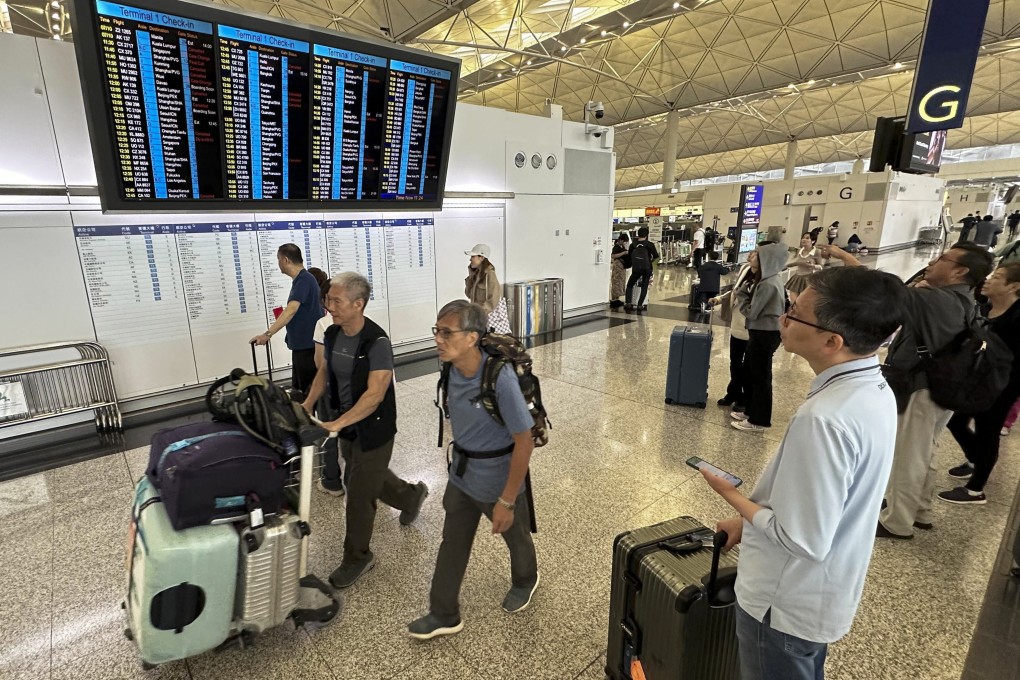Editorial | Hong Kong can learn lessons from transport chaos
- Hong Kong can – and should – do better when dealing with disruptions caused by typhoons or inclement weather, a test that the authorities appear to have failed in recent weeks

For a city with long experience in coping with typhoons, Sunday’s storm ought to have been just another one to weather. This was especially so when the authorities had vowed to better prepare in the wake of Typhoon Saola last month – Hong Kong’s strongest in recent years – and a record-breaking rainstorm just a week later. Regrettably, the response this time still left a lot to be desired.
Conceding that the chaos at the airport was undesirable, Chief Executive John Lee Ka-chiu rightly pledged to review transport arrangements when bad weather hits. But he defended the Observatory’s short notice to upgrade Typhoon Koinu from signal No 8 to No 9, saying forecasts and the issue of warnings were still limited by many factors despite technological advancement.
With barely 15 minutes of notice about the upgrade, the Airport Authority and the transport sector had little time to act before the Airport Express train services were halted. Thousands of travellers were stranded upon arrival, with some having to wait for hours for a taxi. Some drivers reportedly demand hefty surcharges, a common but illegal practice during typhoons. The abrupt suspension of overground train services also left commuters stranded at stations.
It is not the first time that a failure to issue timely alerts has caused traffic chaos. Disruptions were bound to happen when most flights continued to touch down unaffected while transportation on the ground had largely ceased. There were also questions about whether the typhoon was strong enough to warrant the upgrade to No 9.
The city does not necessarily grind to a halt during typhoons nowadays. That makes contingency transport services all the more important. Of particular concern is the long-standing problem of the taxi surcharge, which leaves passengers at the mercy of drivers when public transport becomes unavailable. There are also questions about whether vehicles are covered by insurance under such conditions. All these must be thoroughly looked at. We trust Lee is not just paying lip service in calling for another review. It was only a few weeks ago when he pledged to better alert the public to inclement weather, after a surprise downpour exposed serious gaps in the city’s preparedness for extreme conditions. Lessons must be learned.
